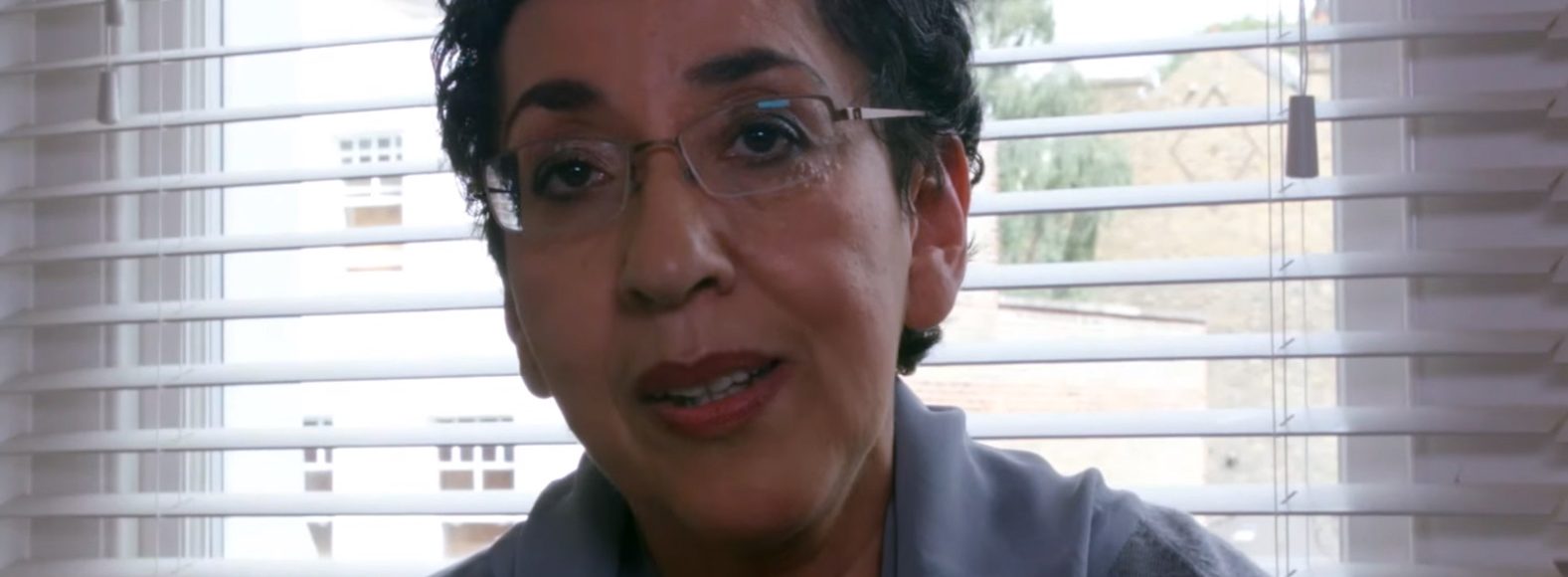Andrea Levy
Biography
Andrea Levy (1956–2019) was born in London in 1956, and described herself as ‘a Londoner.’ Her parents were both from Jamaica: her father came to England on the famous ship, the Empire Windrush, in 1948, and her mother followed a few months later. Levy did not begin writing seriously until she was in her thirties, and she published her first novel, Every light in the house burnin’, in 1994. She wrote four further novels, including Small Island (2004), which won several awards (including the Orange Prize for Fiction in 2004, the Whitbread Book of the Year in 2004 and the Commonwealth Writer’s Best Book in 2005). Her final novel is The Long Song (2010), which was shortlisted for the 2010 Man Booker Prize and was the winner of the 2011 Walter Scott Prize for Historical Fiction. In 2014 she published the collection Six Stories & an Essay. The essay is autobiographical; the stories include Uriah’s War, which Levy also published as a stand-alone text. Levy died of cancer in February 2019 at the age of 62, a few months before the National Theatre was to stage an adaptation of Small Island.
[T]he sheer excellence of Levy’s research goes beyond […] the nuts and bolts of historical fact. Her imagination illuminates old stories in a way that almost persuades you she was there at the time.
Writing

Andrea Levy (Photo: andrealevy.co.uk)
‘For me, writing has always been a journey of discovery about my past and my family’, said Levy in a 2015 interview. ‘All my books look at what it is to be black and British, trying to make the invisible visible, and to put back into history the people who got left out – people like my dad’ (2015 Tinder Press edition of Small Island, p. 539). Scholars tend to demarcate her first three novels from her most recent two: these last two, with their overt historical contexts of 1940s Jamaica and Britain (Small Island), and nineteenth-century Jamaica (The Long Song) are undoubtedly more complex and ambitious than their predecessors in their scope and technique. Yet despite their smaller canvases, Levy’s depictions of the mid-to-late-twentieth-century lives of the Jacob family in Every light in the house burnin’, Olive and Vivien in Never Far From Nowhere, and of Faith Jackson in Fruit of the Lemon, all bear witness to the interconnectedness of Jamaica and Britain since the beginning of the colonial enterprise. In so doing they share the conviction of the postcolonial critic and commentator Stuart Hall, that the ‘personal’ is always the ‘political’.
Levy’s novels convey in-depth portrayals of her characters’ psychology and development with her trademark combination of compassion, humour, and anger at social and historical injustice. Through her interweaving of a range of points of view, perspectives, and time periods her writing often achieves a scale and mood that are paradoxically at once epic and intimate. In Small Island, for example, her commitment to the viewpoints of white British Queenie and Bernard, as well as to Jamaican-born Hortense and Bernard, means that the complex specificities of historical and geographical locale, of gender, of racial politics based on skin colour, and of social and economic class, are all simultaneously in play. The Long Song, in turn, is striking for the freshness and intensity of its depiction of slavery and its aftermath in the British Caribbean. The compelling interior life of its resilient female protagonist, July, tends to stay with all those who have encountered it.
—Tessa Roynon, 2017
Cite this: Roynon, Tessa. “[scf-post-title].” Postcolonial Writers Make Worlds, 2017, [scf-post-permalink]. Accessed 28 January 2022.
